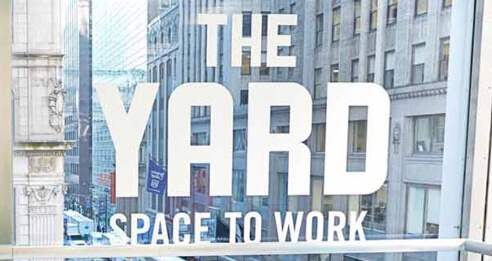
Largest Coworking Companies



As Vice President of Network Development at IWG, Michael Berretta has over 30 years of experience in the flexible workspace industry. At the Future Offices Winter conference in New York City, we were lucky enough to hear Berretta speak in a panel alongside other industry players focusing on the state and evolution of coworking in 2020. From popular technology trends to exploring different coworking partnerships and models, the event offered a great amount of insight into how IWG (the parent company of Regus and Spaces) and other large real estate firms are navigating the industry as it solidifies its hold on the modern workplace. After the talk Berretta was able to give CoworkingResources his personal take on the role of technology in spaces looking to expand and modernize on the path to profitability:
This is the trend that I’ve been the most involved with over the last 24 months has shifted dramatically. It’s not just IWG opening a facility in the building. Now we’re becoming a managing agent for owners that want to have an integrated coworking solution or an activated lobby or an amenity base for their customers, not only from a standpoint of how they market the building themselves and adding value to the asset but enhancing the customer experience in way that they wouldn’t have had before.
A typical building would have a property manager and the relationship between that person and the tenants of the building is pretty limited traditionally. It depends on the person, the company, what they’re trying to achieve. Are they just trying to account for rent checks and make sure the lights come on, or do they really want to get involved with the companies and really put a focus on hospitality? The best companies and the best-managed assets are ones that are starting to focus more on hospitality and customer experience, and that adds value to the property and the assets.
The most interesting way that technology is becoming an asset in this business is actually in the side of accountability and utilization. Through key fob systems and keyless entry or systems that can be installed in a center and share with the company how and when their employees are utilizing the space aids efficient design, it aids in better management of energy in building systems and allows operators and landlords to design space in a more efficient way. So that has a direct path to better profitability and higher output per square foot.
As for unique technology, the flexible workspace industry is starting to adopt a lot of technology that hotels and other large scale event planning facilities have been using for some time. It’s always about knowing how and when people use the space. For the core business that’s the most important factor when you’re considering the design and customer experience.
Coworking Space Management Guide
A comprehensive guide to help you manage your coworking space.
DownloadI think it depends on how relatively competitive the market is. In a major market like New York, San Francisco, Boston or Chicago, it’s a highly competitive, Class A and Class B office market. Many properties that have been in place for 10-15-20 years are having to compete with new construction. Newly constructed buildings are coming up with more active workplaces from the moment someone enters the building. They’ve got more focus on amenities, such as areas that are dedicated to specific purposes (lounges, rooftop decks, studios, event spaces, etc…), much more of a hospitality focus when you go into an office building, which is a pretty rapid departure. So from a standpoint of remaining relevant and being competitive, the trend of aligning with a flexible workspace or coworking provider and integrating that as an amenity and an added part of their property portfolio is extremely popular.
One of the most topical sides of that discussion, not only from the landlord side, but also from the operator’s side is twofold: 1) Buildings being able to market themselves as LEED-certified or that they are a “green” building is such an important area of discussion these days. IWG, in the last 12-18 months has been working towards a major shift to participate in more green initiatives. From a software standpoint, it’s most important in terms of energy management, efficiency and all the things that go into marrying technology with the user experience so that it’s a more efficient vehicle for people to utilize space.
I have a few different opinions on this: from the standpoint of a development initiative or growing a company from the ground up, it’s difficult and there’s a longer lifecycle around the ownership model and developing a building. With that said, the idea of taking a building and devoting the entire thing to all the different product lines that can be utilized in a flexible working arrangement, from membership-based, ad-hoc usage, meeting and training rooms, event spaces, short-term small leases and even long-term leases (although still flexible) is very interesting. Because it allows you to take a customer from cradle to grave almost, across the entire continuum of different ways they can use space. So having an entire building devoted to coworking is extremely interesting. It takes time and it can be fairly unique because of real estate cycles and all the elements that go into interacting with tenants.
Save your community manager 41 hours each week—learn how The Yard did it with cloud-based access control.
Read the Case StudyFree access to our best guides, industry insights and more.
